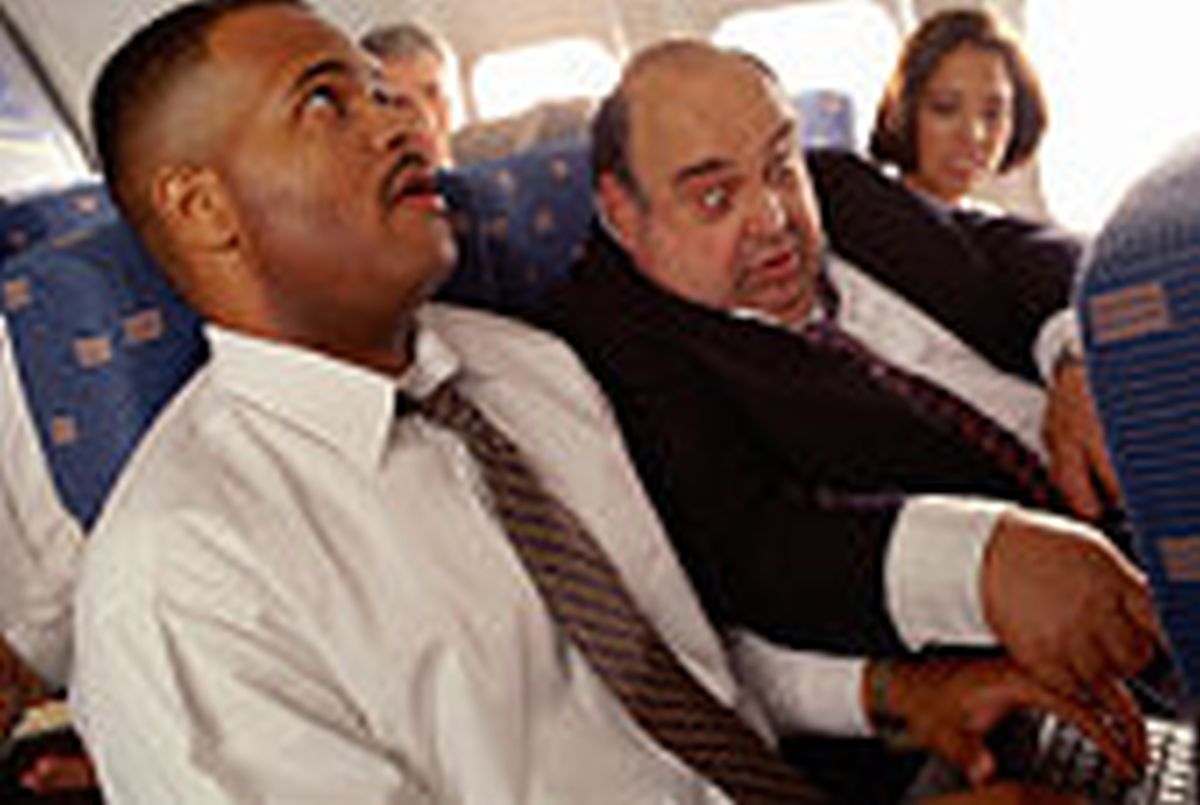Seattle, Washington, September 3 – Temple De Hirsch Sinai administrators found themselves in hot water today after members discovered that the synagogue had overbooked its seats for the High Holidays under the assumption that some would fail to attend. Congregational leaders have assailed the policy, calling it exploitative and unsavory. The administration has promised that anyone who paid for seats but arrives to find the sanctuary already full will be given a voucher good for seats during two other holidays of the member’s choice.
Temple administrators noticed that for years, success in selling all the seats for Rosh Hashanah and Yom Kippur – the Jewish New Year and Day of Atonement, consistently the two best-attended sets of worship services all year – did not guarantee a full house for the actual prayer services and attendant sermons. The administration and rabbinic leadership feared that too many empty seats would dilute the power of the service, and developed a model for maximizing attendance and membership dues revenue, based on the lucrative model of another type of organization that sells seats: airlines.
De Hirsch Sinai financial and facilities administrators agreed that it was preferable to risk several paying members getting turned away from a specific service than to have empty seats. Initially, says Director of Facilities Jim Collier, the plan was to bump overbooked attendees to the temple’s second campus in Bellevue, but it became clear that even Bellevue would soon be overbooked, as well, and the administration had a decision to make.
“We decided to leverage the interest in Rosh Hashanah and Yom Kippur to boost attendance for holidays for which fewer people come to services,” explained the temple’s Executive Director, Lisa Horowitz. “It would be a great way to compensate those who can’t find a seat for the High Holidays and introduce them to the lesser-known, but just as worthwhile, worship of, for example, Passover or Hanukkah.” She admitted to being taken aback at the negative response to the plan.
“I admit it might have been a little forward-thinking to offer beverage-cart service during services, but we’ve cut that back to only during the reading from the Torah,” she said, and that De Hirsch Sinai had removed restrictions on the dimensions and weight of congregants’ bags for holding their Tallitot, or prayer shawls.
The mini-scandal has added a note of awkwardness to an already tense relationship between the administration on lay leaders after a remodeling campaign shrank the legroom in each row of the sanctuary and added several more rows. “We understand the need to generate revenue,” says congregant Ilana Cohn Kennedy. “But the current administration has had some suspect methods for doing so.” She contends there was no need to have the seats recline at all, let alone to lean back so far as to threaten the knees of the worshiper in the next row.
“I was already fed up when they started to charge extra for parking a larger car in the lot for Sabbath services,” added Mike Lucero, who runs the synagogue’s homeless shelter program. “Those of us who need to drive larger automobiles have the same rights as everyone else.”
The spiritual leadership has largely stayed above the fray, trusting that this fracas will be resolved without their intervention. “We are all passengers on this journey called life,” said Daniel Weiner, the congregation’s Senior Rabbi. “Our only true ticket to goodness is in the way we treat one another along the way.”
“That’s the message of this week’s Rock Shabbat program,” he told a reporter. “Will you come?”





